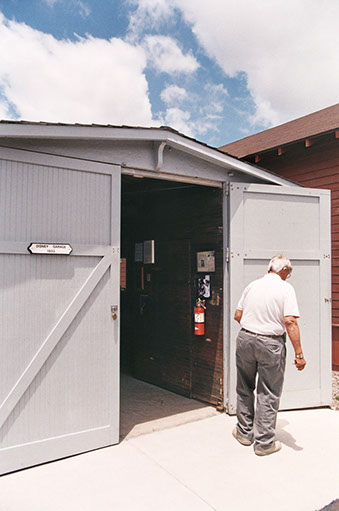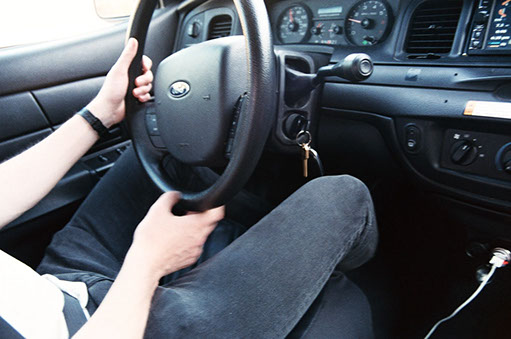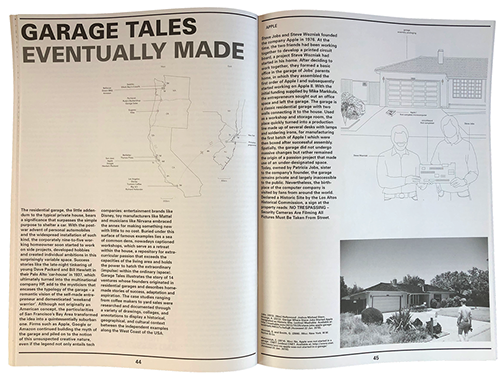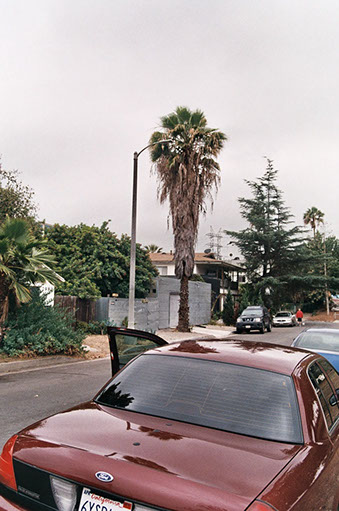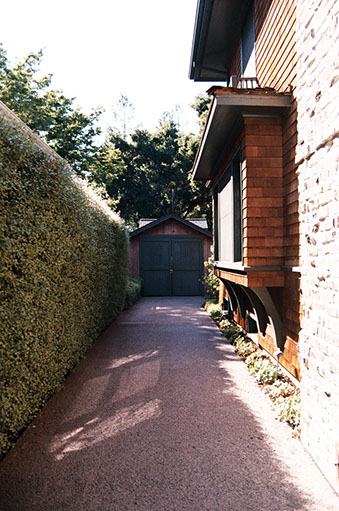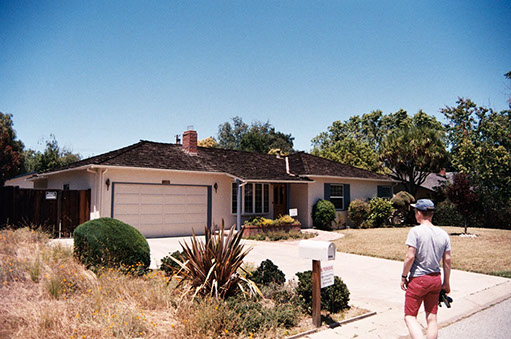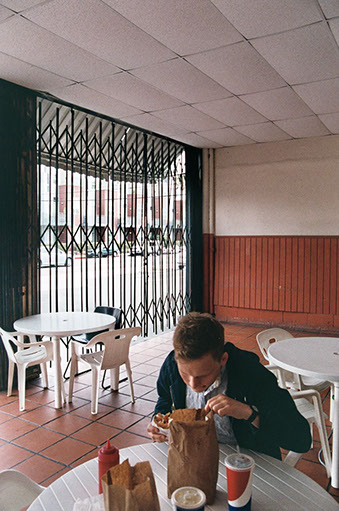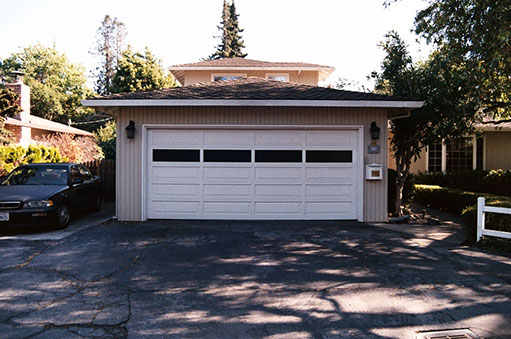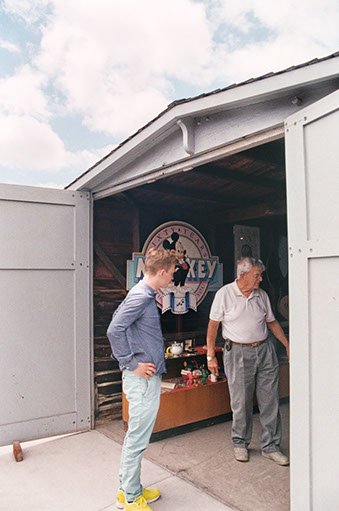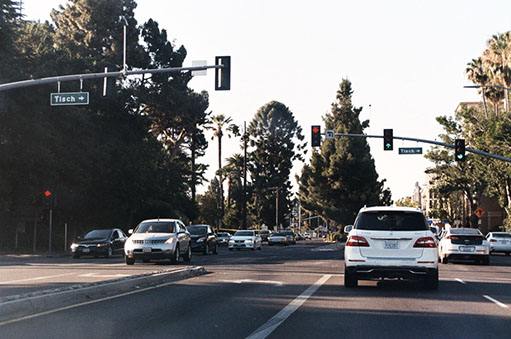Amazon
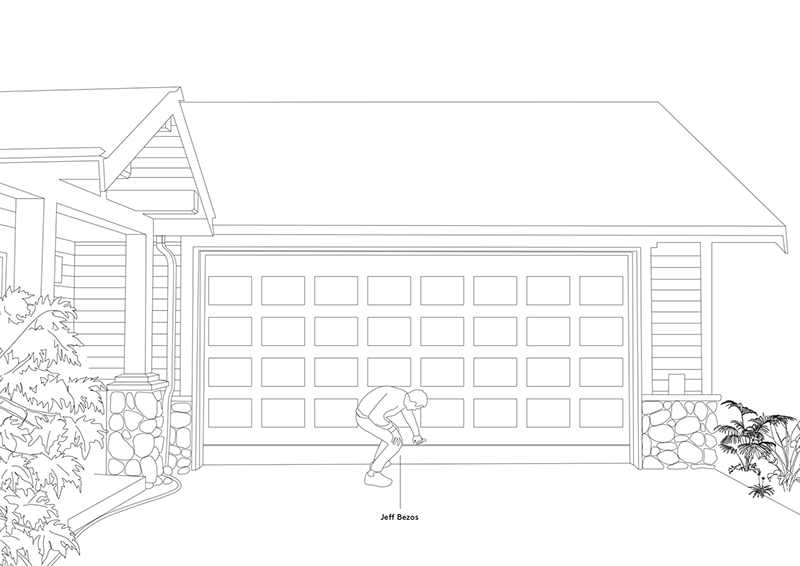
Apple
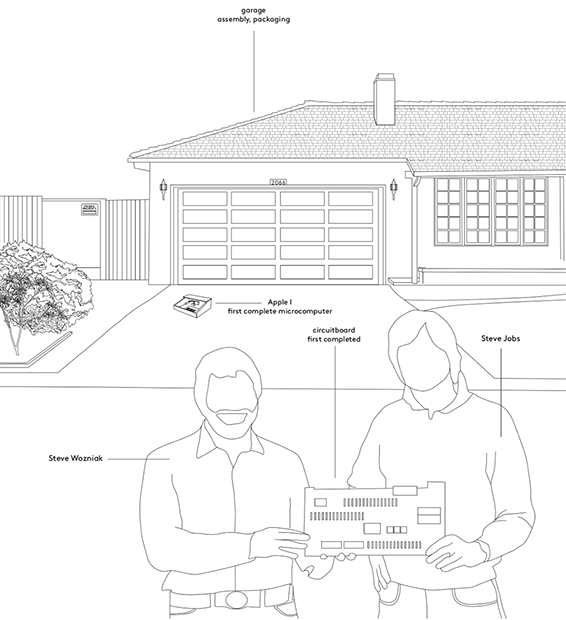
Big Jo's
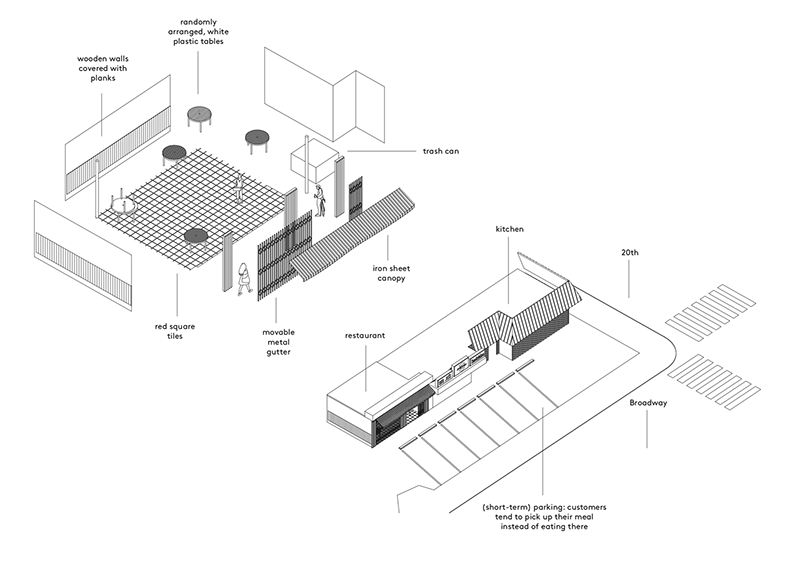
Disney

Dixie's BBQ

Elliott Bay's Crossfit
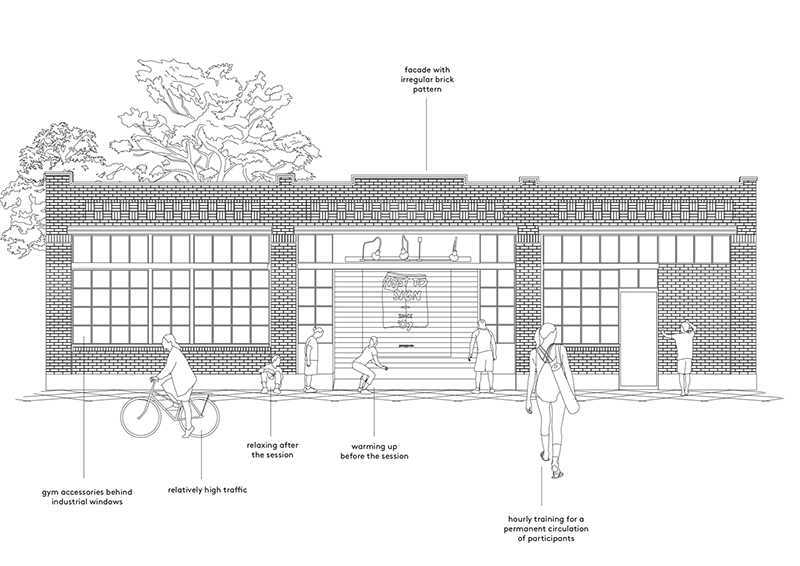

Hewlett-Packard
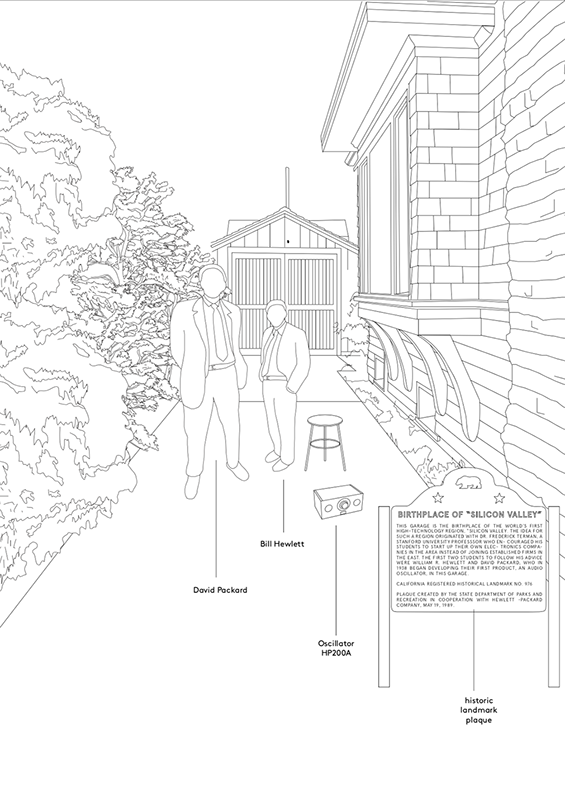
Nike
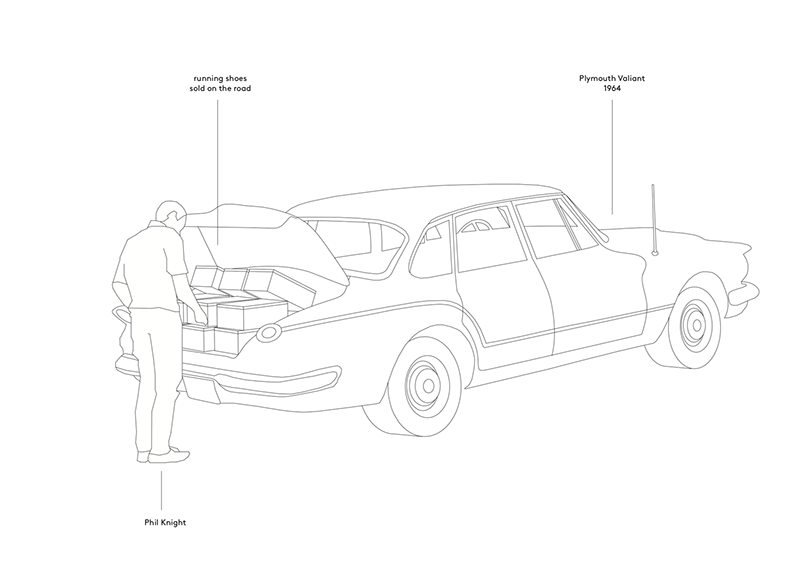
Richard Hollander
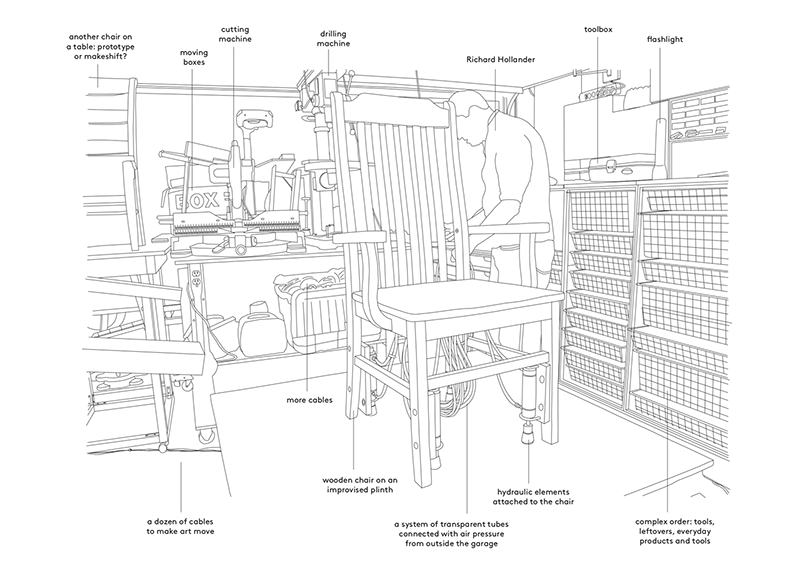
Rudy's Barbershop
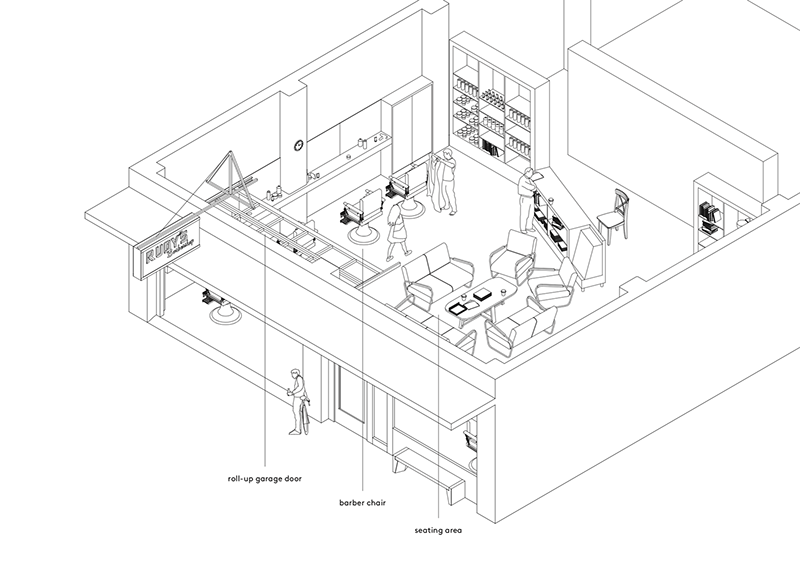
Thyrsus Press
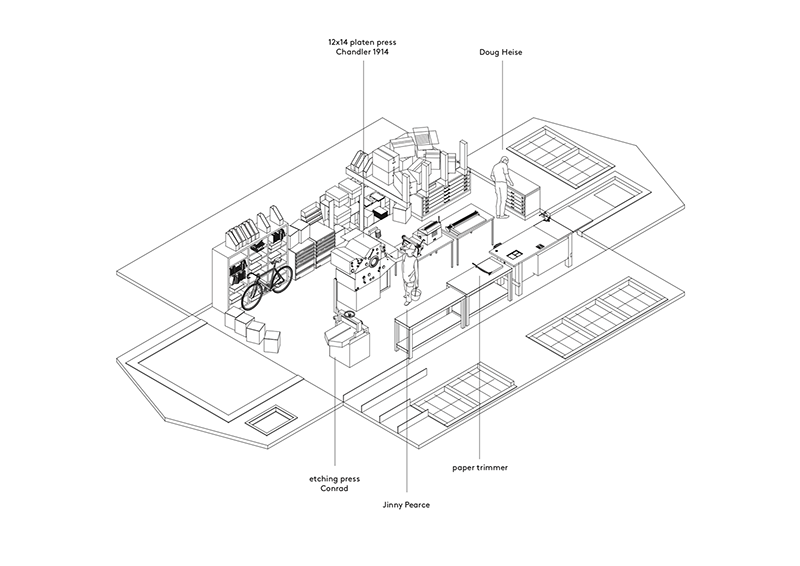
Trystero Coffee

Yard Sale

with Vincent Meyer Madaus
for Princeton SoA (Butler Travel Fellowship)
The residential garage, the little addendum to the typical (American) house, bears a significance that surpasses the simple purpose to shelter a car. In the 20th century, with the post-war advent of personal automobiles and the widespread installation of garages, the corporately nine-to-five working homeowner soon started to work on side projects, developed hobbies and created individual ambitions in this surprisingly variable space. Success stories like the late-night tinkering of young Dave Packard and Bill Hewlett in a private Palo Alto garage in 1937, which ultimately turned into the multinational company HP, add to the mysticism that encases the typology of the garage–a romantic vision of the self-made Western entrepreneur and domesticated “weekend warrior”.
Although not originally an American concept, the particularities of San Francisco’s Bay Area–aptly nicknamed Silicon Valley–transformed the idea into a quintessentially suburban one. Firms such as Apple, Google or Amazon continued building the myth of the garage and piled on to the notion of this unsuspected creative space, even if the legend not only entails tech companies: entertainment brands like Disney, toy manufacturers like Mattel and musicians like Nirvana embraced the private garage as a hub for making something new with little to no cost. Buried under this surface of famous examples lies a sea of common hobby rooms, nowadays captioned workshops, which serve as a retreat within the house, a repository for extracurricular passion that exceeds the capacities of the house. The garage functions as an incubator of ideas that holds the power to hatch the extraordinary (impulse) within the ordinary (space).
Garage Tales illustrates the story of 14 projects whose founders originated in residential garages and describes home-made stories of success, adaptation and aspiration. The case studies from coffee makers to yard sales were researched and documented through various kinds of drawings, collages and annotations to display a historical, geographical and cultural context between the independent examples on the West Coast of the USA and finally exhibited as part of the Butler Travel Fellowship at the Princeton SoA.
with Vincent Meyer Madaus
for Princeton SoA (Butler Travel Fellowship)
01/16
West Coast, USA
